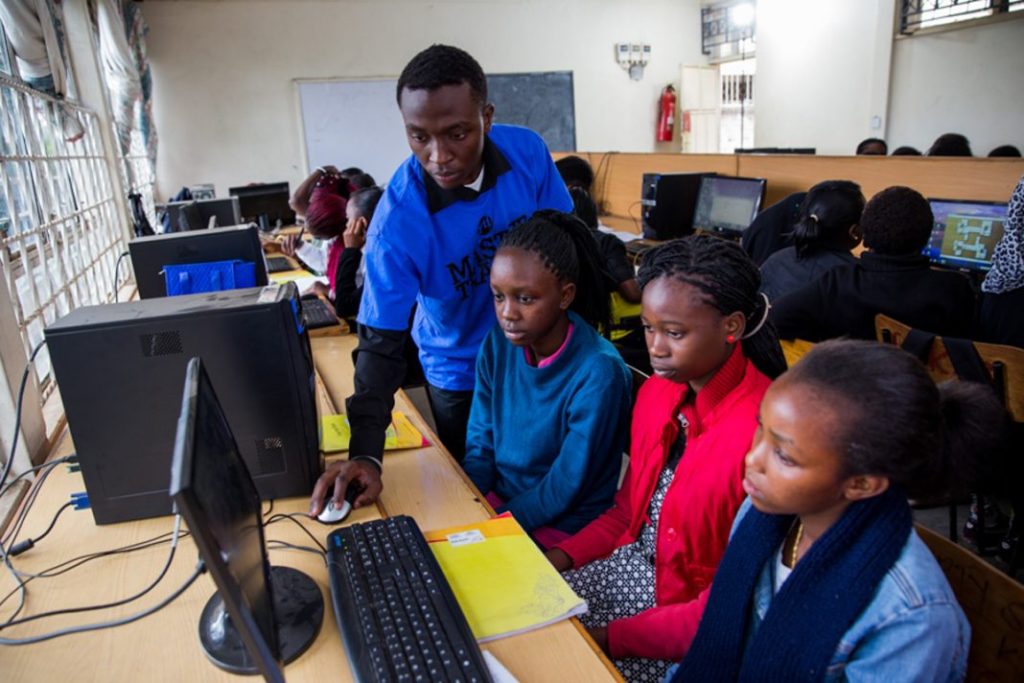In today’s fast-changing world, digital skills have become the foundation of success. Kenya, one of Africa’s fastest-growing digital economies, is witnessing a remarkable transformation fueled by technology. From e-commerce and fintech to digital marketing and remote work, digital literacy is the new currency driving employment, innovation, and entrepreneurship.
The Digital Revolution Transforming Kenya
Over the past decade, Kenya has positioned itself as a regional technology hub, often referred to as the “Silicon Savannah.” With the rise of mobile money platforms like M-Pesa, growth in digital entrepreneurship, and increased internet penetration, technology now drives nearly every sector of the economy.
Digital transformation is no longer optional — it is essential. Every business, from startups to multinational corporations, relies on digital tools to operate efficiently. For Kenyan youth and professionals, digital skills mean employability, financial stability, and global competitiveness.
Why Digital Skills Are the New Economic Power
The concept of digital skills as a new currency goes beyond technology—it represents value, opportunity, and empowerment. In Kenya, being digitally skilled opens doors to better jobs, online income streams, and global collaborations.
1. Enhancing Employability and Career Growth
Employers now demand candidates who can use digital tools efficiently. Whether it’s data analysis, content creation, coding, or social media management, digital proficiency increases job prospects significantly. Organizations across Kenya prefer employees who can integrate digital solutions into their roles.
Even traditional sectors such as agriculture, healthcare, and education are adopting technology-driven models. A farmer who understands mobile apps for crop management or a teacher using e-learning platforms is more competitive and productive.
2. Empowering Entrepreneurship and Innovation
Kenya’s entrepreneurial ecosystem thrives on digital innovation. Thousands of small businesses rely on digital marketing, mobile payments, and e-commerce platforms to reach customers. Entrepreneurs with digital literacy can scale their businesses beyond borders, creating sustainable income and jobs.
Platforms like Jumia, Glovo, and Instagram Shops have empowered Kenyan business owners to connect with clients locally and internationally. Those who master digital advertising, analytics, and content strategy are now redefining success.
3. Enabling Financial Independence Through the Gig Economy
Digital skills enable Kenyans to work globally while living locally. With platforms such as Upwork, Fiverr, and Toptal, freelancers from Kenya offer services in writing, design, coding, and marketing. These global opportunities have transformed lives, making digital literacy a key driver of economic independence.
Many young people are now shifting from traditional employment to freelancing, remote jobs, and digital consultancy, proving that knowledge of the digital economy equals financial freedom.
The Growing Demand for Digital Skills in Kenya
According to studies by organizations such as CIFAR and UNESCO, Kenya faces a significant digital skills gap. While internet access is increasing, many citizens lack the necessary technical and soft digital competencies required to leverage online opportunities.
In response, both the Kenyan government and private sector are investing heavily in digital education. Initiatives like the Ajira Digital Program, Google Digital Skills for Africa, and ICT Authority training aim to equip millions of youth with market-relevant digital skills.
These programs focus on areas such as:
- Digital marketing and e-commerce
- Web and app development
- Data analytics and artificial intelligence
- Cybersecurity and cloud computing
- Online freelancing and remote collaboration tools
Such investments not only bridge the digital divide but also prepare Kenya for a future-ready workforce that can compete globally.



Bridging the Urban-Rural Digital Divide
While cities like Nairobi, Mombasa, and Kisumu are advancing rapidly, rural communities still struggle with limited access to digital infrastructure. However, innovative solutions like community ICT hubs, affordable smartphones, and digital literacy campaigns are helping bridge this gap.
Organizations such as Safaricom Foundation and Konza Technopolis Development Authority are introducing initiatives to make digital learning accessible to all Kenyans. As digital inclusion grows, more rural entrepreneurs and youth are participating in Kenya’s booming digital economy.
Digital Skills and the Future of Work in Kenya
The future of work in Kenya is digital, flexible, and borderless. Automation, artificial intelligence, and remote collaboration are transforming industries. To stay relevant, Kenyans must continuously upskill and reskill in response to changing technologies.
Educational institutions are now integrating STEM and digital courses into their curricula. Employers also encourage continuous professional learning through online platforms such as Coursera, LinkedIn Learning, and Udemy.
Those who embrace lifelong learning will thrive in the evolving job market. The digital economy rewards individuals who adapt quickly, think creatively, and use technology to solve real-world problems.
How Digital Skills Drive Kenya’s Economic Growth
The impact of digital literacy extends beyond individuals—it fuels national economic growth. According to the Communications Authority of Kenya, the digital sector contributes billions to Kenya’s GDP annually.
Here’s how:
- Job Creation: New tech startups and online businesses are providing thousands of employment opportunities.
- Foreign Investment: Global tech companies are setting up regional offices in Kenya, attracted by a tech-savvy workforce.
- Innovation and Exports: Kenya’s digital products and services, such as fintech solutions, are being exported across Africa.
- Inclusive Growth: Technology empowers marginalized groups, including women and rural communities, by giving them access to online opportunities.
By strengthening digital literacy, Kenya can unlock its full potential as Africa’s leading digital economy.
Steps to Build and Improve Digital Skills
To harness the full benefits of the digital revolution, individuals and organizations must prioritize digital upskilling. Here are practical steps:
- Take Online Courses: Enroll in free or paid programs on Google, Coursera, or local institutions.
- Practice Consistently: Apply digital skills in real projects—create blogs, design content, or code applications.
- Join Digital Communities: Engage with professional networks on LinkedIn or local tech hubs like iHub Nairobi.
- Stay Updated: Follow tech trends and news to stay relevant in a fast-changing digital landscape.
- Mentor Others: Share your knowledge to help others grow and strengthen Kenya’s digital ecosystem.
Conclusion: The Future Belongs to the Digitally Skilled
In Kenya, digital skills are no longer a luxury—they are a necessity. As technology continues to reshape every industry, those who master digital literacy will lead the nation’s progress. The ability to adapt, innovate, and connect in the digital space is the true measure of wealth in the modern era.
By investing in education, infrastructure, and inclusive access, Kenya is paving the way for a digitally empowered future—where knowledge, creativity, and technology drive prosperity for all.



